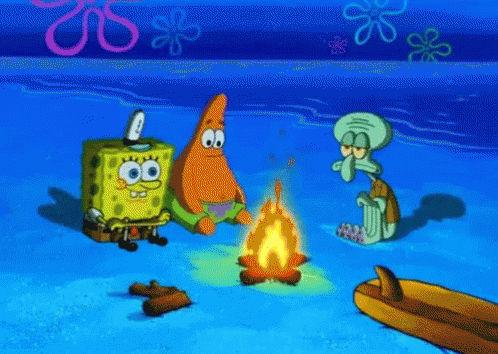Sleep Before We Die

New Year's Eve is maybe my least favorite day of the year. Most people would probably name another holiday, but New Year's Eve is the one I fixate on. There have been some New Year's Eves that I've enjoyed (the first time I watched Shrek was NYE 2002), but most of my experiences have been decidedly unpleasant. I don't enjoy being forced to stay awake, so being ordered to sit in front of the TV and watch the ball drop as a child was not fun. Now that I'm an adult, I can sleep early and set my own schedule - but now, the inexorable march of time forces me to confront the fact that I haven't accomplished most of the things I set out to do at the beginning of the year.
Call it the ghost of failed New Years' resolutions.
The thing is, I've had the same goal of "wake up early!" for maybe 15 years. I realized when I was very young that my mornings were golden, and the older I get, the more I value my mornings. Waking up early is often cited as the most common habit of all successful people, although I don't think that just because Jeff Bezos wakes up at 4 AM, you should too. Ultimately, we must find a morning routine that works for our schedule. I emphasize waking up early because I've found that my morning sets the tone for my entire day. Here's why:
- I'm more productive in the mornings.
I did homework in the morning before school when I was a kid and noticed I got a lot more done in the mornings than late at night. It definitely wasn't the last-minute panic causing me to get it done faster. - No one bothers me.
Very few people are awake early compared to late at night, and most people aren't very chatty in the mornings either. - I feel fresher in the morning than late at night, and nature reciprocates.
I noticed this more after moving to New York City because the general chaos of people going about their business hasn't begun yet in the early mornings. The quiet also helps with: - It's a great time for exercise and reflection.
Working out with no one around ruins most gyms for you. Plus, exercising in silence is great for thinking through things.
It's not that I haven't been able to ever wake up early in the past 15 years. I go through stretches of consistency, but maintaining a set wake-up time for more than four months at a time has been a challenge for me. I keep a spreadsheet where I log various things about my daily routine, and as I write this post, I haven't woken up anywhere near the same time in nearly a month. Specifically, my struggle with waking up is because I haven't been able to sleep well.

Understanding that sleeping well is the key to waking up well is seemingly obvious, but I haven't ever given my night-time routine much thought. Aside from brushing my teeth and putting pajamas on, I don't do anything to prepare for bed. So what I've done for the past two weeks is study what makes a good night-time routine to set myself up to have a good morning routine.
My big source of information is Huberman Lab (a fantastic podcast; I highly recommend it) because Andrew Huberman gives a lot of empirical evidence for the topics he brings up, citing various vetted studies for the solutions he gives. Not only that, the things he brings up pass the "Lindy test" - they're things with a long history of working rather than being some newfangled idea or a chemical invented in a lab. Here are some of my takeaways from Huberman Lab's guide on sleeping well:
- Turn on the lights 30 minutes before your wake-up time
- Get natural light from outside ASAP after waking up
- Exercise early
- Meditate right after exercise
- Restrict eating to a set time every day (same 10-hour window every day)
- Lower overhead lights after 7 PM
- No lights after 11 PM (floor lights, red lights, firelight ok)
- Be consistent with the timings of wake-ups and rest
I suggest you listen to the episodes where sleep is discussed to learn more about this - I won't dive deep into why these pieces of advice are given. But I will point out the three basic sections these recommendations fall under: things to do when waking up, things to do when awake, and things to do when falling asleep.
One downside of having sections of life is that we become myopic and fail to see that one influences the other. Our waking time affects our sleep; our sleep affects our waking existence. This is the principle of karma and reincarnation on a micro level. If we look at how these recommendations for healthy sleep and wakefulness apply when we extrapolate our daily existence to our life as a whole, we can actually learn a lot about how to live without regrets and strengthen our spiritual life.
Waking up early and getting natural sunlight quickly afterward is emphasized in ancient Sanskrit works. The early morning is golden for spiritual practices because we can give full attention to our practice. It's also recommended to exercise in the mornings and meditate immediately afterward, as doing some physical activity to satisfy the body and mind helps one engage in their meditative practices well. But as it's the end of the year, I want to focus on the night-time routines.

We all have experienced our minds surfacing the thoughts we've swept under the rug before falling asleep. For those of you who have a regular meditation practice, this is the same reason that things we experienced recently, our to-do list, or our future plans emerge into our minds when meditating. We lack time to reflect during our day properly. Then, as soon as we have a calmer mind, we start to reflect on what we have experienced.
The emphasis on reducing our screen light intake and prioritizing firelight towards the end of the day makes sense from an evolutionary biology perspective, but also consider this: sitting around a campfire usually leads to deeper, more intimate, reflective conversations than almost any other situation. The activities we do at the end of life (reflecting, slowing down, prioritizing relationships with loved ones) are also the ones we generally find ourselves doing around a campfire. When we treat sleep as the death of our day, we can practice being more reflective in our day-to-day existence.
I'm in the process of making these changes in my life, so we'll see how it goes. I hope that if I start to view going to bed as the death of my day and approach it accordingly, I can set myself up for better sleep, a better morning, and a less stressful time awake. I'll be taking notes and will most likely write about how it's gone in a few months, so stay tuned!
Happy to welcome 2023,
-Sid




